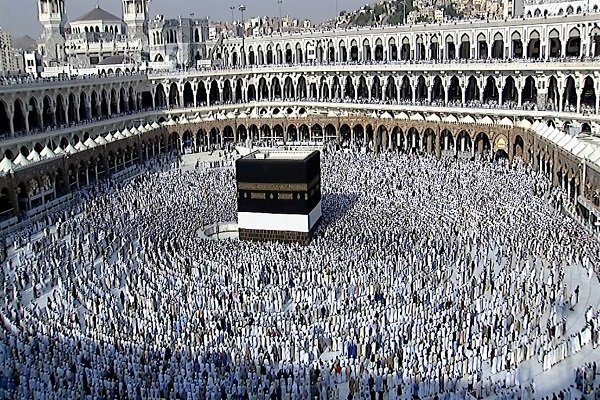Iran says its pilgrims attend Hajj this year, Riyadh confirms

TEHRAN – Iranian pilgrims will participate in this year’s Hajj in Saudi Arabia after a one-year absence, what seen as a rare promising spot in stalled relations between the two regional rivals.
“Required conditions have been met for more than 85,000 Iranian pilgrims to attend Hajj in the (Iranian calendar) year 1396 (which starts on March 21),” read part of an announcement by Iran’s Hajj and Pilgrimage Organization on Friday.
The agreement comes after the two sides reached a consensus on February 23 on a package which includes arrangements for safety measures as well as consular, and medical services following months of negotiation, the announcement further said.
The Saudi side, also, confirmed the news.
"The ministry of hajj and the Iranian organization have completed all the necessary measures to ensure Iranian pilgrims perform hajj 1438 according to the procedures followed by all Muslim countries,” Saudi Arabia’s official SPA news agency quoted the Saudi Hajj ministry as saying on Friday.
The news agency said the kingdom had completed all arrangements for the Iranian pilgrims to return, without offering details.
For the first time in nearly three decades, Iran's pilgrims, nearly 60,000, did not attend the hajj in 2016 after the two countries failed to agree on security and logistics.
Already strained over a list of differences, relations between the two countries took a nosedive after the 2015 hajj, when a human crush killed more than 2,400 pilgrims, including more than 464 Iranians in Mina.
Tehran blamed Riyadh for mismanaging the holy sites and called on the world’s Muslims to reconsider Saudi control of them considering the country’s “incompetence.”
Saudi Arabia said the crush happened because pilgrims went the wrong way down a one-way passage but has never provided a detailed explanation of what went awry.
The agreement comes as a promising development between the two countries as last year Saudi Arabia broke off diplomatic relations with Iran after rioters stormed the Saudi Embassy in Tehran while protesting Saudi Arabia’s execution of Nimr al-Nimr, an outspoken Shiite cleric who had criticized the Saudi royal family.
Yet, it remains to be seen if the Hajj compromise will create any spillover effects for the two countries which back opposite sides in Syria and Yemen.
The development is the second successful experience after Tehran and Riyadh Saudi Arabia and Iran, coupled with other OPEC members, signed on to a deal to cut oil production.
AK/AK
Leave a Comment